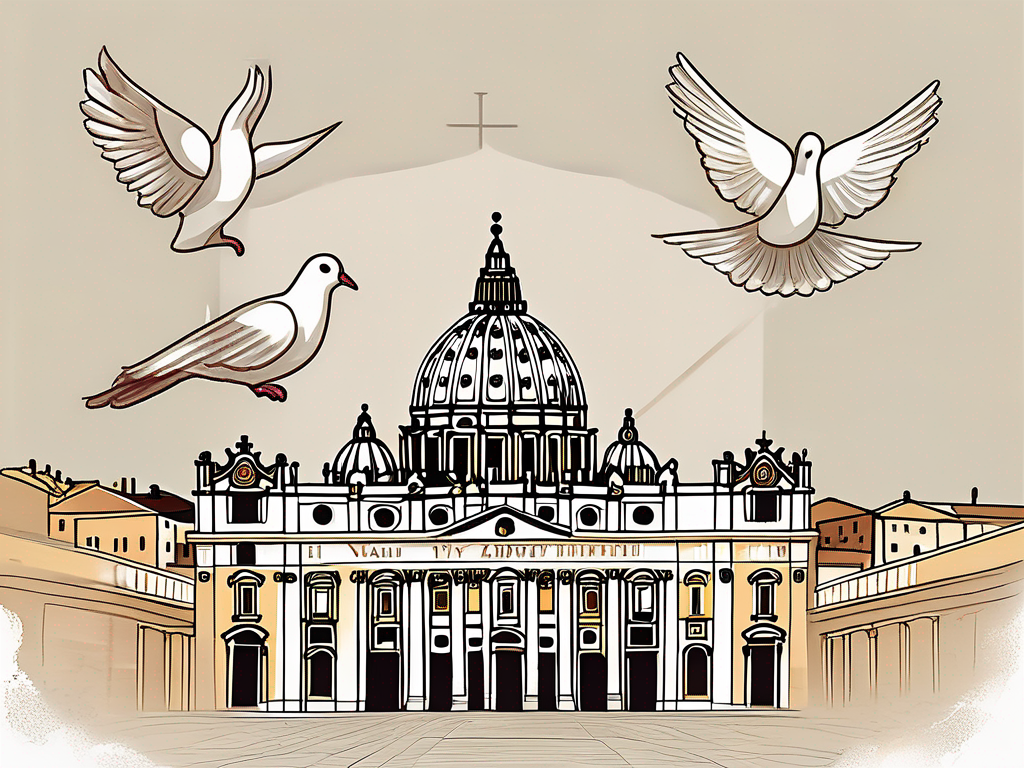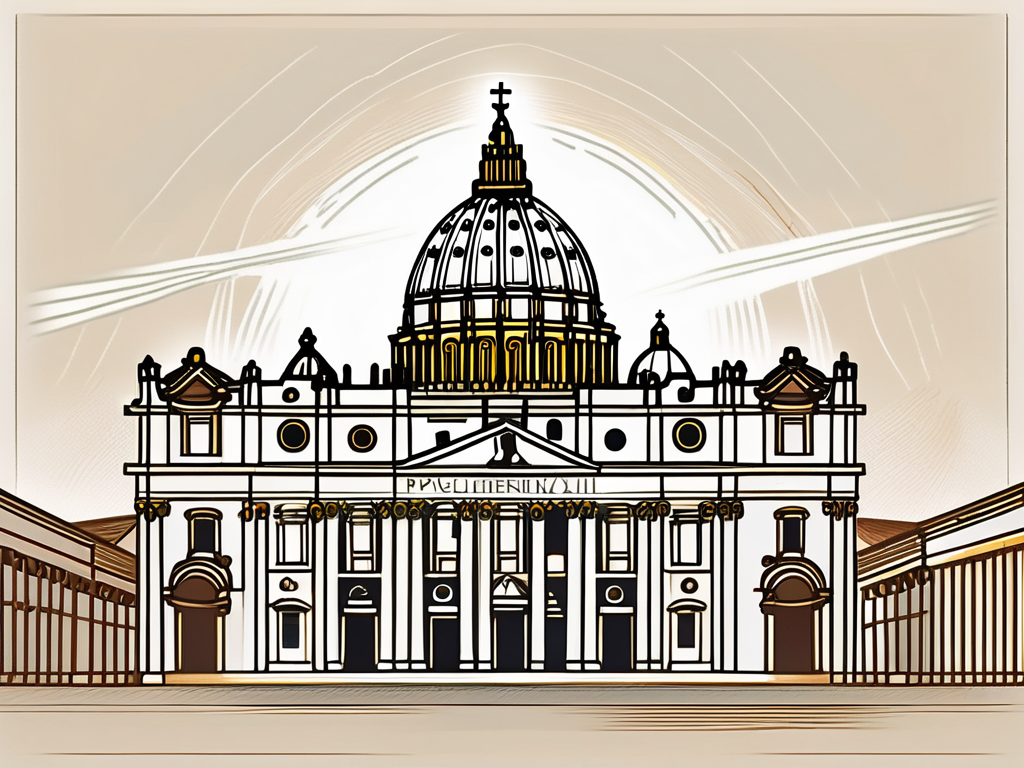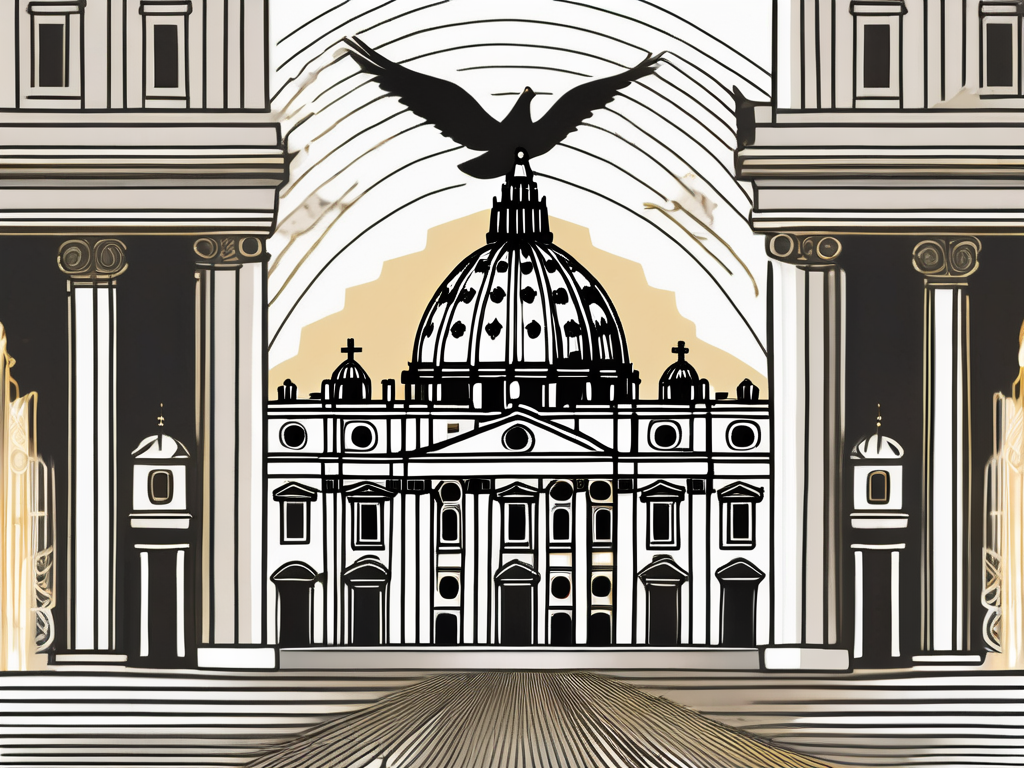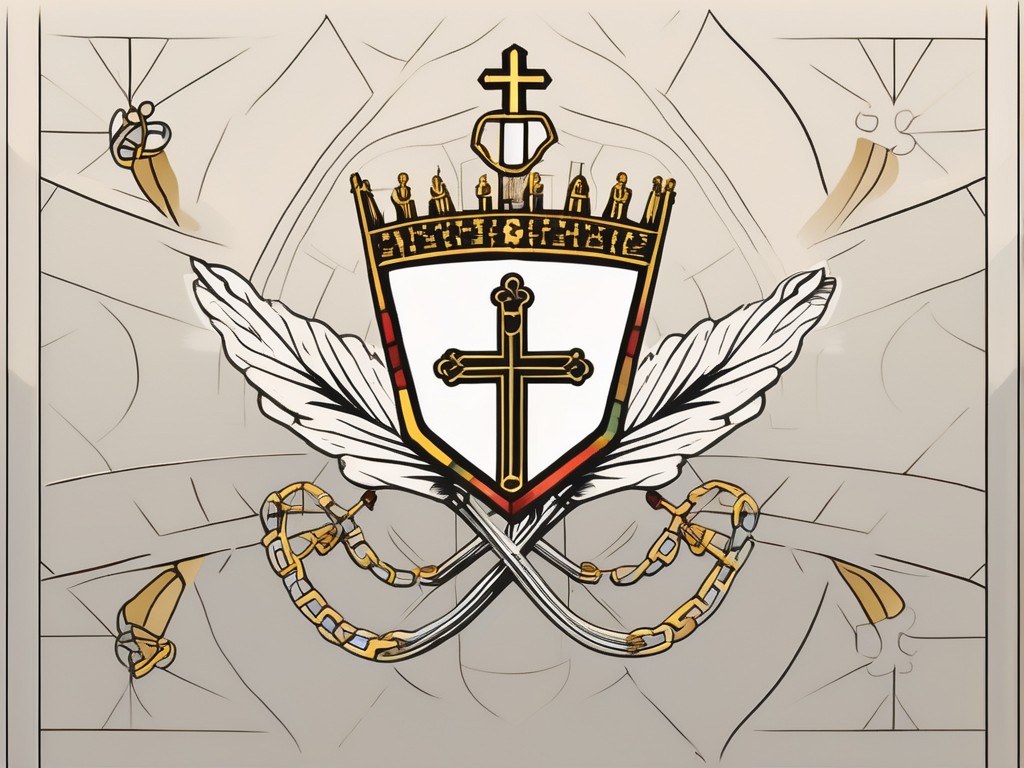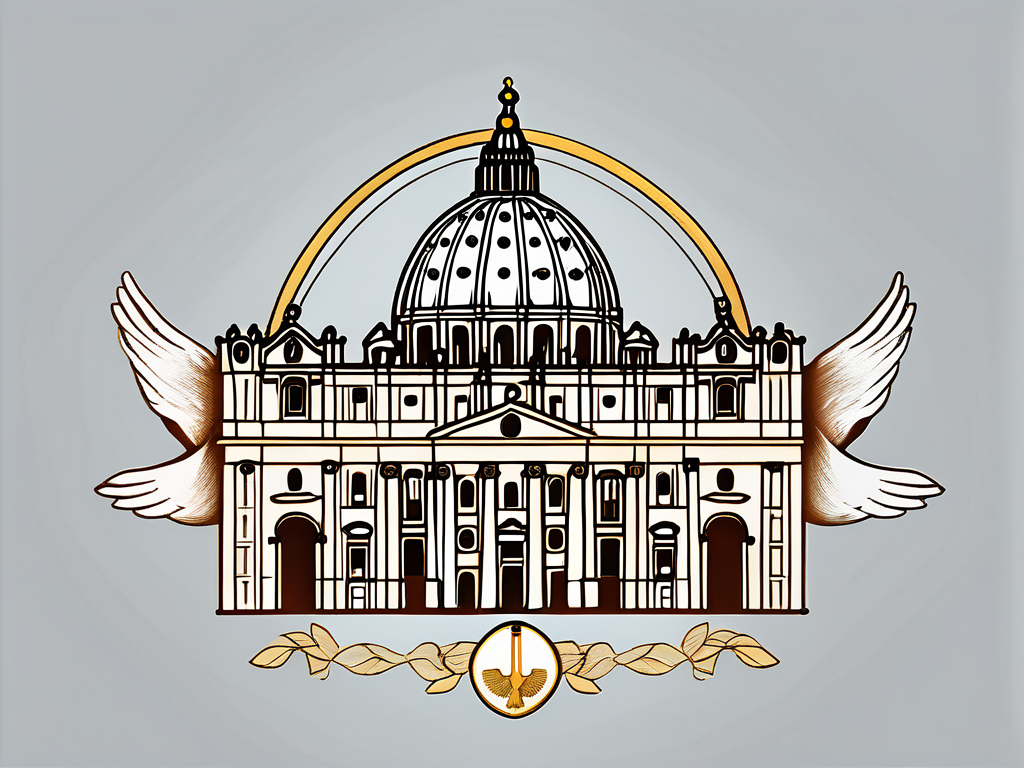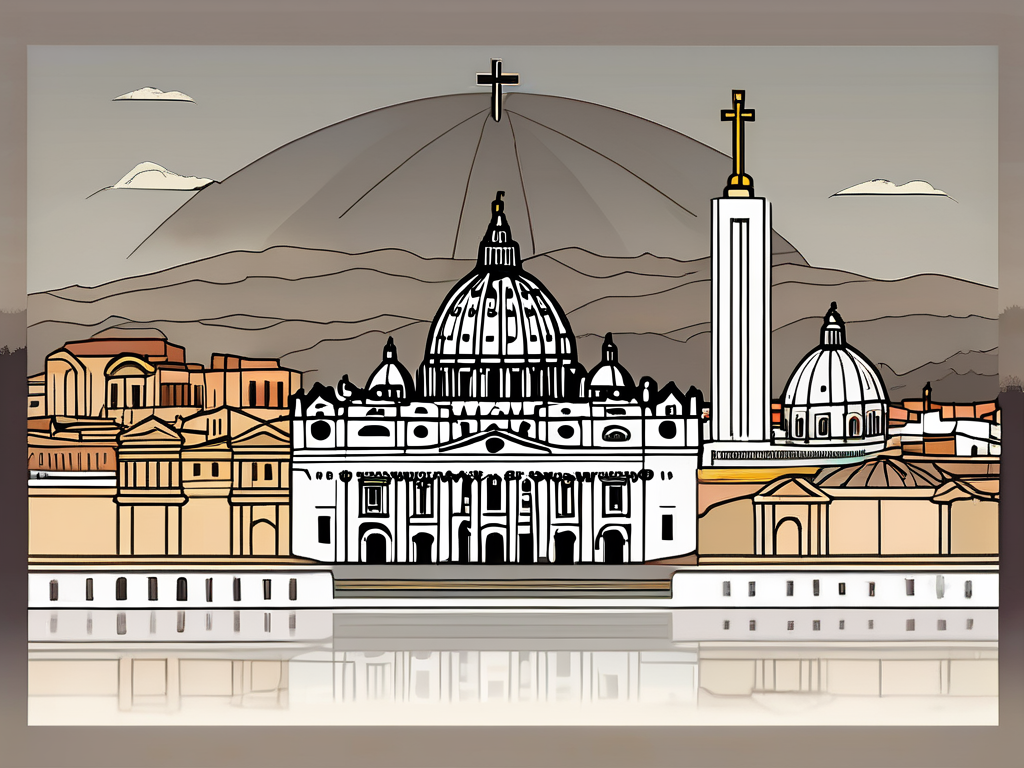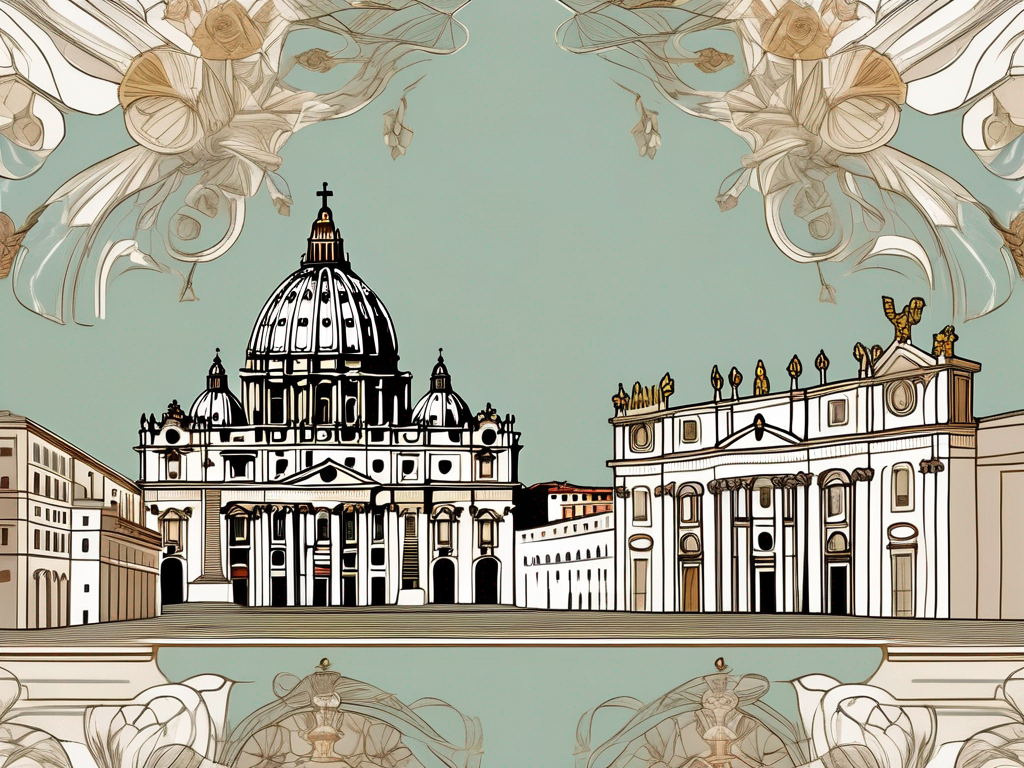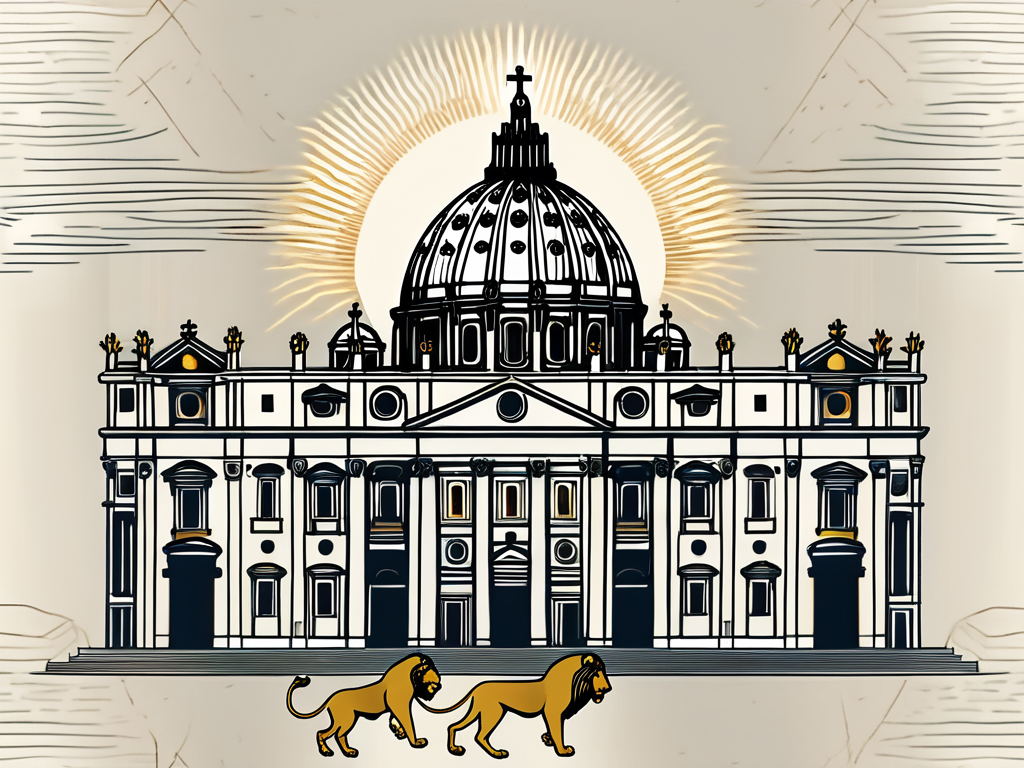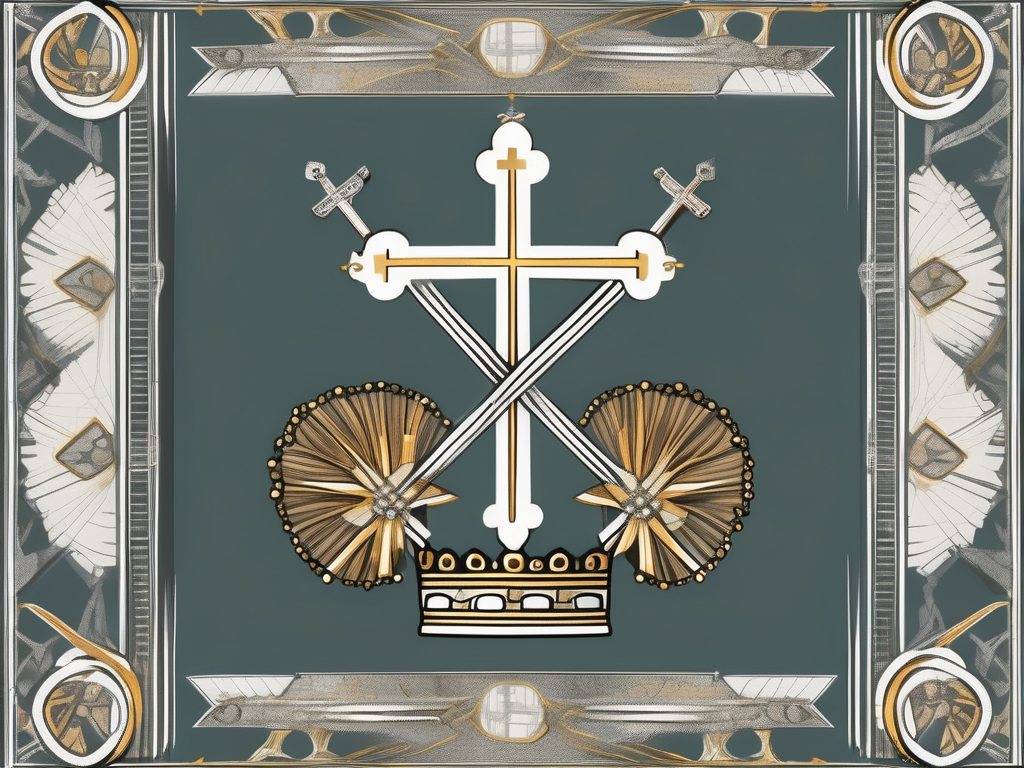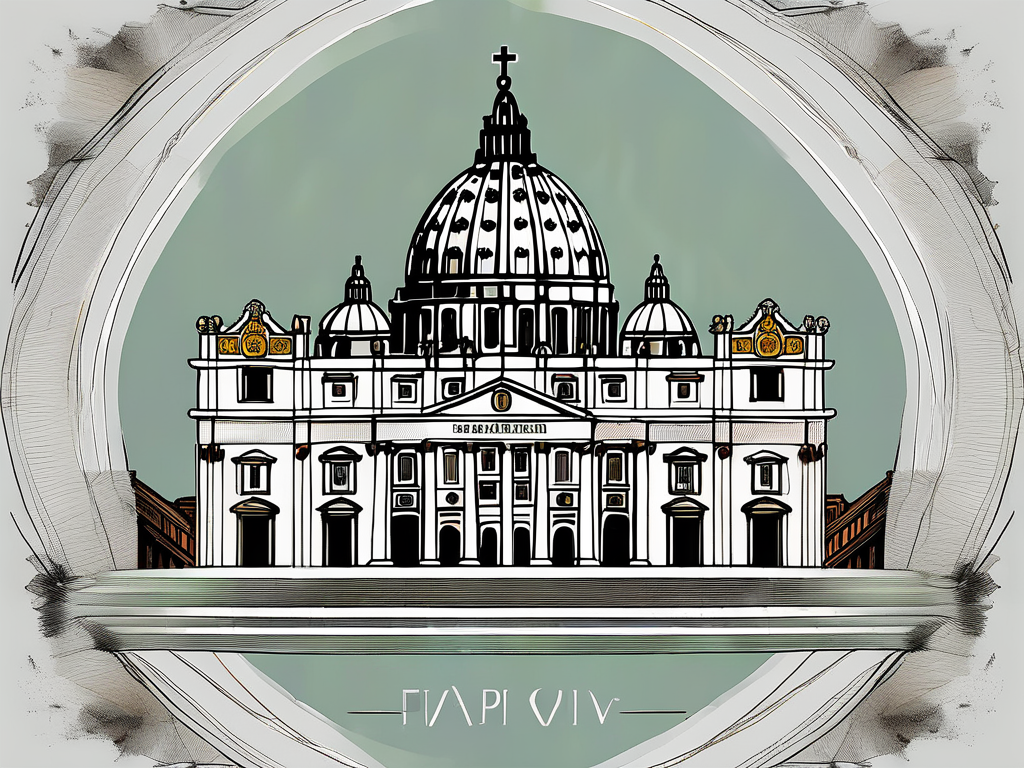Pope Leo XIII, born Vincenzo Gioacchino Raffaele Luigi Pecci, was an influential figure in the Catholic Church during the late 19th and early 20th centuries. His life and legacy continue to shape the Church to this day. Let’s dive into his journey, starting with his early life and education.
Early Life and Education of Pope Leo XIII
Birth and Family Background
Pope Leo XIII, whose birth name was Vincenzo Gioacchino Raffaele Luigi Pecci, was born on March 2, 1810, in Carpineto Romano, a picturesque town nestled in the hills near Rome, Italy. The Pecci family, to which he belonged, was no ordinary family. They were descendants of the ancient Pecci family of Siena, known for their noble lineage and rich history. This aristocratic background would prove to be influential in shaping the young Vincenzo’s worldview and future endeavors.
Growing up in a family with such a prestigious heritage, Vincenzo was exposed to the values of honor, tradition, and service from an early age. His parents, Count Ludovico Pecci and Anna Prosperi Buzi, were devout Catholics who instilled in their children a deep sense of faith and a commitment to the Church’s teachings.
Education and Early Religious Influence
Recognizing his intellectual potential, Vincenzo was sent to the renowned Jesuit College in Viterbo, where he received a comprehensive education that laid the foundation for his future accomplishments. It was during his time at the college that his passion for theology, philosophy, and the social teachings of the Church began to take root.
After completing his studies at the Jesuit College, Vincenzo continued his pursuit of knowledge at the prestigious Gregorian University in Rome. This renowned institution, known for its academic rigor and commitment to Catholic education, provided him with a platform to further deepen his understanding of the Church’s teachings and the complexities of the world.
While Vincenzo’s education played a significant role in shaping his intellectual development, his early religious influence came not only from his family but also from a pious housekeeper who served as a spiritual guide during his formative years. Through her unwavering devotion and commitment to the Catholic faith, she nurtured Vincenzo’s growing faith and instilled in him a sense of duty to serve the Church and its followers.
As Vincenzo matured into a young man, his education and religious upbringing intertwined, fueling his desire to make a lasting impact on the world. Little did he know that his journey was only just beginning, and the world would soon come to know him as Pope Leo XIII, a pontiff who would leave an indelible mark on the Catholic Church and the world at large.
Ascension to Papacy
In 1878, at the age of 68, Vincenzo Gioacchino Raffaele Luigi Pecci was elected as Pope Leo XIII. His election came at a crucial time for the Church, as it grappled with the rapid changes of the modern world.
Leo XIII’s ascension to the papacy was not without its own unique story. Born into a noble Italian family, he had a strong background in theology and philosophy. His intellectual prowess and deep understanding of the Church’s teachings made him a respected figure among his peers.
The news of his election spread like wildfire, and the faithful followers of the Catholic Church rejoiced at the prospect of having such a learned and compassionate leader. The anticipation for his papal coronation grew, as people from all walks of life eagerly awaited the official beginning of Leo XIII’s pontificate.
Election and Papal Coronation
The papal coronation was a grand occasion, attended by thousands of faithful followers. The streets leading to St. Peter’s Basilica were adorned with colorful banners and flowers, creating an atmosphere of joy and celebration.
The ceremony itself was a meticulously planned event, steeped in centuries-old traditions. As Leo XIII made his way to the altar, the sound of hymns filled the air, sung by a choir of angelic voices. The magnificent vestments worn by the newly elected pope added to the splendor of the occasion.
As the crown was placed upon his head, the crowd erupted in applause and cheers, their faith reaffirmed by the sight of their new spiritual leader. The coronation marked the beginning of Leo XIII’s papacy, which would span an impressive 25 years, making him one of the longest-reigning popes in history.
Challenges Faced in the Early Years of Papacy
As Pope, Leo XIII faced numerous challenges, one of the most pressing being the growing secularization of society. The rapid advancements in science, technology, and political ideologies posed a threat to the Church’s influence and teachings.
Recognizing the need to address these issues head-on, Leo XIII embarked on a mission to bridge the gap between the Church and the modern world. He believed in engaging with society, rather than isolating it, and sought to find common ground between faith and reason.
Additionally, Leo XIII had to navigate disputes within the Church, striking a delicate balance between tradition and the need for reform. He understood that the Church needed to adapt to the changing times without compromising its core values and teachings.
The young pope demonstrated wisdom and prudence in tackling these challenges. He engaged in extensive dialogue with theologians, philosophers, and leaders from various fields, seeking to find solutions that would uphold the Church’s teachings while addressing the concerns of the modern world.
Leo XIII’s efforts to promote social justice and address the plight of the working class also became a defining aspect of his papacy. His encyclical “Rerum Novarum” (On the Condition of Labor) addressed the issues of workers’ rights and the need for just economic systems, earning him the reputation of being a progressive and compassionate leader.
Throughout his papacy, Leo XIII’s intellectual brilliance and compassionate nature allowed him to navigate the challenges of the modern world while staying true to the teachings of the Catholic Church. His influence extended far beyond the confines of Vatican City, leaving a lasting impact on the Church and society as a whole.
Major Contributions of Pope Leo XIII
Encyclicals and Their Impact
One of Pope Leo XIII’s most significant contributions was his series of encyclical letters, which addressed a wide range of topics. His encyclicals, such as “Rerum Novarum” and “Immortale Dei,” tackled social issues, economic inequality, and the relationship between Church and state.
These encyclicals had a profound impact not only within the Catholic Church but also on broader social and political movements. Leo XIII’s teachings on social justice and the dignity of the human person laid the groundwork for modern Catholic social thought.
Diplomatic Efforts and Achievements
Pope Leo XIII was not only a spiritual leader but also an astute diplomat. He engaged in diplomatic efforts and played a crucial role in resolving conflicts between nations and within the Church.
Leo XIII’s tireless efforts towards peace and justice earned him respect and admiration from leaders around the world. His diplomatic achievements helped restore harmony and fostered understanding in a time of political turmoil and strife.
Pope Leo XIII and the Modernization of the Church
Role in the Church’s Adaptation to Modern Society
Recognizing the need for the Church to adapt to the rapidly changing world, Leo XIII played a vital role in modernizing the Church’s approach to various social, cultural, and political issues.
He encouraged the clergy to engage in intellectual pursuits and to embrace scientific, technological, and philosophical advancements. Leo XIII believed that the Church must be relevant and accessible to all, while remaining faithful to its teachings.
Influence on Theological and Philosophical Studies
Leo XIII’s deep interest in theology and philosophy led him to make significant contributions to these fields. He encouraged the study of scholasticism and Thomistic philosophy, promoting a renaissance of Catholic intellectual thought.
His teachings on the relationship between faith and reason shaped the Church’s approach to theological and philosophical studies, emphasizing the importance of both faith and critical thinking in the search for truth.
Controversies and Criticisms
Opposition and Disputes
Like all transformative leaders, Pope Leo XIII faced opposition and disputes during his papacy. Some within the Church disagreed with his approaches, particularly when it came to the modernization efforts.
There were also those who opposed Leo XIII’s diplomatic engagements, deeming them unnecessary or too compromising. However, the pope remained steadfast in his convictions and continued to pursue his vision of a more inclusive and adaptable Church.
Response to Criticisms
Pope Leo XIII responded to his critics with charity and prudence. He acknowledged differing viewpoints and engaged in respectful dialogue. Despite the controversies, he maintained a sense of unity within the Church and focused on bringing about positive change.
Leo XIII’s ability to navigate criticisms while upholding the core principles of the Church demonstrates his exceptional leadership and unwavering commitment to the faithful.
The Lasting Legacy
Pope Leo XIII’s life and legacy continue to inspire and guide the Catholic Church today. His teachings on social justice, the dignity of the human person, and the Church’s role in a rapidly changing world remain particularly relevant.
His commitment to dialogue, diplomacy, and a culture of encounter provides valuable lessons for leaders across different spheres of society.
As we reflect on the life and work of Leo XIII, we are reminded of the enduring impact a single individual can have on the world. His legacy serves as a testament to the power of humility, wisdom, and compassion in shaping a more just and harmonious society.
Pope Leo XIII’s influence will undoubtedly continue to guide the Church well into the future as it strives to carry forward the values he held dear.

